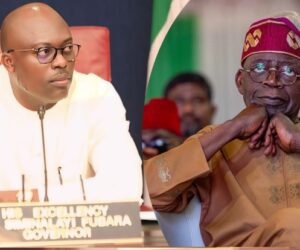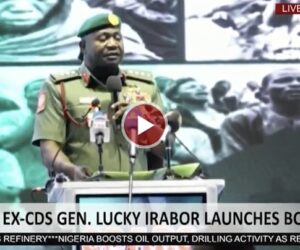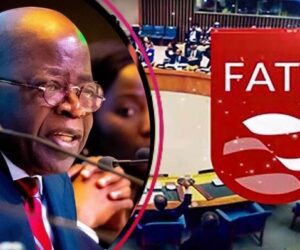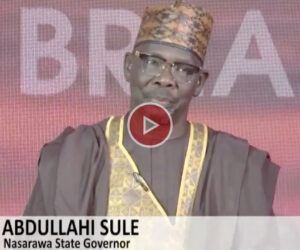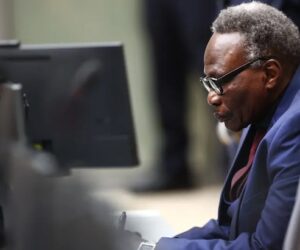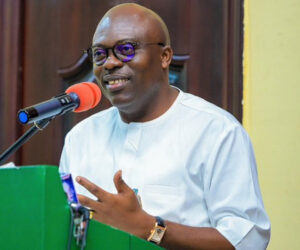Central Bank of Nigeria (CBN) Governor, Olayemi Cardoso, on Friday, said Nigeria’s consistent policy stance and transparency reforms in the foreign exchange (FX) market have strengthened investor confidence, spurred renewed interest from global players, and supported the accretion of the country’s external reserves.
He said this on Friday, at the inaugural edition of the CBN Governor’s Lecture held at the Lagos Business School, where he challenged young Nigerians to see themselves not merely as spectators in the economic debate but as the very subjects upon which the country’s future stability and prosperity depend.
This comes as renowned global investor and Chairman of Global Infrastructure Partners (GIP), Adebayo Ogunlesi, described Nigeria as an increasingly attractive destination for international investment, citing recent economic reforms and government-backed initiatives that have reshaped the business climate.
Also on Friday, the CBN’s decision to assume full control of the Nigerian Fixed Income Market from November 2025, received support from analysts who spoke with THISDAY. The financial market analysts held the view that the move would strengthen transparency, restore regulatory clarity, and sharpen the effectiveness of monetary policy transmission.
Speaking on the theme “Next Generation Leadership in Monetary Policy & Nation Building,” the lecture to mark the launch of what the CBN described as its Knowledge Acceleration and Thought Leadership Series, a platform to bridge policy and practice while cultivating values-driven leadership.
Turning to reforms under his administration, the CBN Governor noted that clearing the inherited forex backlog was a decisive move that restored credibility and signalled to markets that the Bank was serious about reforms. According to him, trust in Nigeria’s financial system has grown stronger because promises were kept.
“If we expect people to continue to trust and invest in our economy, you’ve got to keep your promises. That particular action contributed in no small way to the rise in foreign exchange reserves we have been able to accomplish,” he added.
On the forex market, Cardoso highlighted the adoption of a B-Matching electronic trading system, which he described as a game-changer. The platform, he said, has ensured greater transparency by allowing all participants to view and transact at the same market-determined rates, reducing information asymmetry that previously created distortions.
“In the past, some had access to certain information while others didn’t. Now, with the B-Matching system, that gap has been significantly reduced. The market has almost become a perfect market, and this openness builds the trust investors require when coming into our economy,” he said.
Reflecting on progress since his assumption of office, Cardoso stressed that consistent policies and firm commitment to the CBN’s mandate have placed Nigeria on a stronger footing.
“Two years later, consistent messaging, consistent policies, doing all the right things, not compromising in your mandate, has taken us to a good place,” he said.
According to him, the evidence of renewed confidence is clear in reports by international rating agencies, multilateral institutions such as the World Bank, and feedback from global banks. He pointed out that top investment firms which had previously stayed on the sidelines, are now revisiting Nigeria with keen interest.
“We have seen an incredible increase in appetite for Nigeria. BlackRock, among others, is showing interest. Many who were watching from the sidelines are now saying, This is the time to get in.’ In one word, the future for Nigeria is bright,” he declared.
Furthermore, Cardoso underscored the CBN’s long-term commitment to discipline, innovation and inclusiveness, stressing that sustainable prosperity would depend on leadership rooted in credibility and accountability.
He added: “For our part, rest assured that at the Central Bank we will not be deterred in building an institution you can trust, one that is disciplined, innovative, and steadfast in its commitment to Nigeria’s future.
Stability is not an end in itself, but the foundation on which we must build growth, inclusion, and renewal. The journey ahead demands credibility emanating from discipline, because credibility once lost is hard to regain; innovation, because tomorrow’s problems cannot be solved with Friday’s tools; and inclusiveness, because policy means little if it does not improve the lives of ordinary people. This is what next-generation leadership requires: leadership that is data-driven yet people-centred, courageous yet humble, visionary yet accountable, determined to build not just for today but for generations unborn.
In the meantime, Adebayo Ogunlesi, who spoke during a recent interview after visiting President Bola Tinubu, highlighted Nigeria’s progress in areas such as subsidy removal, tax reform, refinery operations, and road ownership unification. According to him, these reforms signal a fundamental transformation in Nigeria’s economy and create fresh opportunities for global investors.
“Nigeria is now a place that is exciting to invest in, and that’s what we talked to Mr. President about. And of course, as you would expect, he was very encouraging of international investments in Nigeria,” Ogunlesi said.
Ogunlesi, whose company invests heavily in energy, ports, and aviation globally, noted that Nigeria’s vast natural gas reserves, growing aviation sector, and potential for renewable energy projects offer strong investment opportunities.
Acknowledging his firm’s operations in neighbouring ports in Cotonou and Lomé, he admitted to the President that Nigeria had so far been overlooked in that area.
Tinubu, he said, encouraged him to redirect such investments home, and the company is now considering Nigerian port infrastructure as a priority.
He said, “The aviation sector is also an area of interest to us. I confessed to Mr. President that one of our companies has ports in Cotonou, and it has a port in Lome, none in Nigeria. So I asked for his forgiveness and understanding, and being the gentleman that he was, he forgave me, but said you have to bring port investment to Nigeria. So that’s another area we’re looking at. Renewables, that’s another area. So lots of investment opportunities in Nigeria. You just have to be serious about making the right moves.”
“People describe me as the guy who bought Gatwick Airport. I did not personally buy the airport,” he explained.
Speaking in the same vein, another International Investor, Mr. Hakeem Bello-Osagie, said it would be a great signal for the international community to invest in Nigeria when Nigerians, both in the country and in diaspora, start investing in the country.
“We thanked President Tinubu for his policies that have made Nigeria investible and we give him every assurance to the president and Nigerian people that we will do our very best in creating a fast growing Nigeria, which will achieve its objectives,” Bello-Osagie said.
The Executive President, National Revenue Service, Mr. Zacch Adedeji, noted that President Tinubu has done fundamental reform, which has invited all these is encouraging people to invest in the country.
He said: “We have done the fundamental and the next thing for us is to realise export led economy, which is why you have seen these great Nigerian (Ogunlesi) who is committed and Mr. President has given the go ahead.“So, the only thing I can say is that hope is on the rise.”
Meanwhile, the CBN’s decision to assume full control of the Nigerian Fixed Income Market from November 2025 has been welcomed by analysts, who argue that the policy will strengthen transparency, restore regulatory clarity, and sharpen the effectiveness of monetary policy transmission.
The move, announced in a circular signed by Okey Umeano, Acting Director of the Financial Markets Department, represents the first phase of a phased reform strategy that would see the apex bank directly oversee both the trading platform and settlement of fixed income transactions.
According to the CBN, the objective was to “strengthen market integrity, streamline operations, and establish a unified regulatory framework that ensures end-to-end visibility and oversight of fixed income transactions.”
Analysts note that the reforms were expected to curtail the autonomy of private platforms such as FMDQ, whose role in the trading and settlement of sovereign debt instruments has often raised questions about transparency and price discovery.
Head of Consulting at Agusto Consulting Limited, Jimi Ogbobine, said: “ With the new policy by the CBN, the FMDQ will now have to focus entirely on non-sovereign debt instruments. This could become a pivotal moment for the Nigerian debt market as it will lead FMDQ to focus more on market development activities and galvanise stakeholders across board in growing other instruments such as green bonds. It could also propel FMDQ into driving initiatives that will deepen market activities in debt market instruments like sub national bonds, corporate bonds, commercial papers and even attracting listings of corporate bonds from other African companies.”
Chief Executive Officer of CFG Advisory, Mr. Tilewa Adebanjo, noted that by consolidating oversight of sovereign debt instruments under the CBN, the apex bank would be better positioned to align fixed income operations with broader macroeconomic objectives, particularly price stability and liquidity management.
He said: “A move in the right direction to ensure monetary policy effectiveness and transparency in the management of money supply.”
A senior dealer at a Tier-1 bank, who requested anonymity, said the reform was inevitable, given the CBN’s responsibility to ensure monetary stability.
“This transition will alter the operating landscape for FMDQ,” the dealer remarked. The central bank’s jurisdiction rightly extends to money market instruments such as Treasury Bills, FX derivatives, and commercial papers. FMDQ will still have scope to operate in non-sovereign instruments like corporate bonds and sub-national debt under the Securities and Exchange Commission (SEC). But in sovereign debt, regulatory clarity was always going to prevail.” He added.
Another market source stressed that the handling of naira forwards in recent years exposed gaps that underscored the need for tighter oversight. “What we are seeing is the CBN correcting a structural misalignment. The FMDA had historically worked closely with the central bank before the shift in autonomy under FMDQ. That autonomy created space for inefficiencies that are now being closed.”
Nume Ekeghe, Dike Onwuamaeze
Follow us on:


